There’s more influencing our food choices than we may realize. Often, when we serve ourselves another helping or reach for a snack we know our body isn’t craving, we blame our lack of discipline and willpower. In reality, the reactive, compulsive, and automatic ways we engage with food are, in part, a downstream effect of living with unprocessed body grief, shame, and neglect, or feelings of unworthiness and disappointment in our bodies and ourselves. learn about the five mindsets and practices I turn to in order to help my clients gently process the emotional discomfort often tied to food, so they can begin to feel more at home in their body as it is and move forward in a healthier and more complete way.
Read MoreIn my work with clients, radical self-care is the practice of attuning to our physical and emotional bodies and responding in a way that creates an internal sense of calm and safety. You can start down this path by watching your energy usage throughout the day (e.g. where it goes and how it comes back in) and nurturing the energy deficits - whether you’re numbed out or strung out - in an intentional way. (Two specific practices are suggested at the end.).
Read MoreIn order to accept and embrace your current body, you must grieve the loss of your old body.
This is a suggestion I’ll offer my clients in session. As we move towards an accepting, compassionate and mindful existence with food and body, we often experience sadness and grief about our changing bodies.
Read MoreI'm sharing a short clip from the workshop I gave a few weeks ago, Nurturing the Wise Mind for Conscious Nourishment. In the clip I talk about a psychological concept called window of tolerance to explain how and why we use food to soothe, escape, numb, or create a sense of control.
Read More



